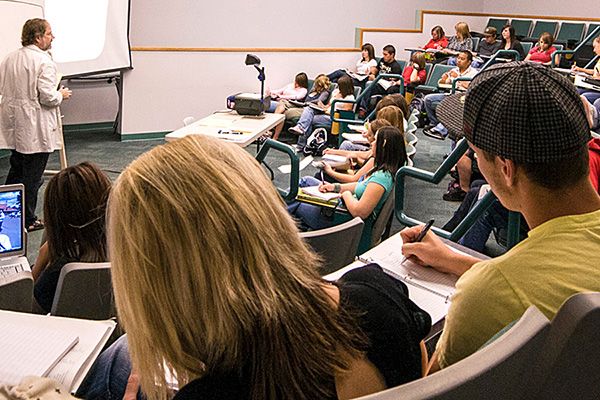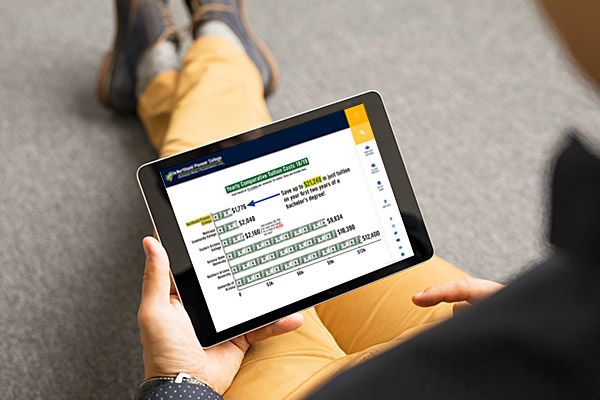Preserving Evidence
Northland Pioneer College (NPC) recognizes that making the decision to report sex/gender-based harassment, sexual harassment, sexual assault, domestic and dating violence, stalking, sexual exploitation, or other forms of sexual misconduct often takes time. Nevertheless, pending the decision to report, individuals are strongly encouraged to take immediate steps to preserve all evidence that might support a future report or an investigation by the Police, by NPC, or both.
Important information and best practices around preserving evidence both for specific types of incidents and in general, can be found below.
General Tips for Preserving Evidence
- Record the names of any witnesses and their contact information.
- This information may be helpful as proof of a crime, to obtain an order of protection, or to offer proof of a college policy or procedure violation.
- Try to recall details (e.g., physical description, names, license plate number, car description, things you could hear/see/smell/feel, etc.) and write as much down as you remember about the circumstances of the incident.
- Make efforts to save relevant communications, such as text messages, voicemail and other phone records, emails, photos or videos, social media interactions, or other records.
- To avoid losing this data if your device becomes damaged or replaced, it’s beneficial to save copies of these communications to a secure drive or the cloud, or even print them out and file the hard copies away in a safe place.
- If you obtain external orders of protection (e.g., personal protection orders, injunctions, protection from abuse), please notify NPC’s Title IX Coordinator (and local law enforcement if it happened off-campus) so that those orders can be observed on campus. The Title IX Coordinator may provide help such as a no-contact directive.
RECOMMENDATIONS BASED ON TYPE OF INCIDENT:
Sexual Assault/Rape
Preserving any available evidence after an assault allows you or your friend to leave open the option for criminal prosecution in the future without the obligation to take that step. Because some kinds of evidence may only be collected within a short time period after an assault, delaying action to preserve evidence immediately reduces the chances for a successful criminal prosecution in the future. The optimal time window for the collection of evidence is less than 72 hours.
Some things to keep in mind are…
- To preserve evidence in the case of sexual assault, it is recommended that you do not shower or bathe, wash your hands, use the toilet, douche, eat, drink, smoke, brush your teeth, change clothing, or wash clothing or bedding before a medical exam. Even if you have already taken any of these actions, you are still encouraged to have prompt medical care. See the infographic to the right for more details.
- Medical Assistance — Even if you have no apparent/obvious injuries after the assault, it is still recommended that you seek medical care to assess for possible underlying injuries and offer preventative resources against unwanted pregnancy and sexually transmitted diseases/infections. If you wish to seek medical treatment at the hospital, the medical providers will, with your permission, collect physical evidence to be used if you decide to prosecute, through what’s called a forensic examination.
- Forensic Examination — If while receiving medical treatment you provide consent for physical evidence to be collected, the process of doing so is often referred to as a “rape kit”. Depending on the types of sexual contact/activity that occurred, the search for physical evidence may include taking samples from the vagina, mouth, or rectum to test for sperm cells and semen. If you think you were drugged or consumed a sedative-like substance, ask the medical provider to take a urine sample. Other evidence may be obtained from fingernail scrapings, foreign matter on your body, and the clothes you were wearing at the time of the assault. All exam findings are completely confidential and can only be released with your written consent. If you have visible injuries, you may be asked to have photographs taken. Photographing injuries is important because by the time your assailant is prosecuted, the injuries may have healed.
- Evidence Collection — Typically, if police are involved or will be involved, they will obtain evidence from the scene, and it is best to leave things undisturbed until their arrival. Police may gather bedding, linens or unlaundered clothing, and any other pertinent articles that may be used for evidence. It is best to allow police to secure items in evidence containers, but if you are involved in transmission of items of evidence, such as to the hospital, or if you aren’t sure whether or not you’d like to report to police at that time, secure them in a clean paper bag or clean sheet to avoid contamination. Plastic bags or containers are not recommended and items should be stored at room temperature that will not damage evidence.
- If physical injuries are present, photograph or have them photographed, with a date stamp on the photo.
Dating and Domestic Violence
- In the case of dating and/or domestic violence, the resource you choose to report the incident/crime to (a doctor, the police, the College, an advocate, etc.) may recommend ways to preserve evidence such as logging incidents, seeking medical care, etc.
- If physical injuries are present, photograph or have them photographed.Things to consider –
- Include a date stamp on each photo.
- Be sure to take photographs at various time points after the incident to capture the healing process. (For example, it may take a few days for bruising or other signs of injury to appear so if photographs are only taken immediately after a physical incident occurs, important details/evidence of the injuries may not be captured.)
- Take photographs from various angles to document the full scope of the injuries.
Stalking
- Stalking is demonstrated through a pattern of unwanted contact or conduct.
- Recording information about the stalking behavior you may be experiencing will help to document the behavior for College resolution processes, protection order applications, divorce and child custody cases, or criminal prosecution should wish to hold the individual engaging in the behavior accountable. It can also help preserve your memory of individual incidents about which you might later report or testify.
- The stalking log (below) can be used to record and document all stalking-related behavior, including harassing phone calls, text messages, letters, e-mail messages, acts of vandalism, and threats communicated through third parties.
- When reporting the incidents to law enforcement, always write down the officer’s name and badge number for your own records. Even if the officers do not make an arrest, you can ask them to make a written report and request a copy for your records.
- In addition to logging unwanted contact, an advocate or police officer may recommend you save and photograph unwanted text messages, emails, letters and gifts and store them in a secure location.
Reporting
If you wish to make a report to law enforcement, or if you wish to have evidence collected so you can make this decision later, the following entities can offer assistance:
- The local police in the area (jurisdiction) to which the incident occurred
- Contact NPC's Title IX Coordinator: Josh Rogers | Email | (928) 536-6227
- Contact the Navajo County Family Advocacy Center.
- Contact North Country Healthcare.
- Navajo County Crisis Response Services
- Apache County Resources
Counseling & Support
You have various confidential counseling resources on and off campus that can help and guide you through this process. See our Resources page for more information.
Questions For any questions or concerns, please contact the Title IX Coordinator, Dr. Michael Solomonson | Email | (928) 536-6217.






